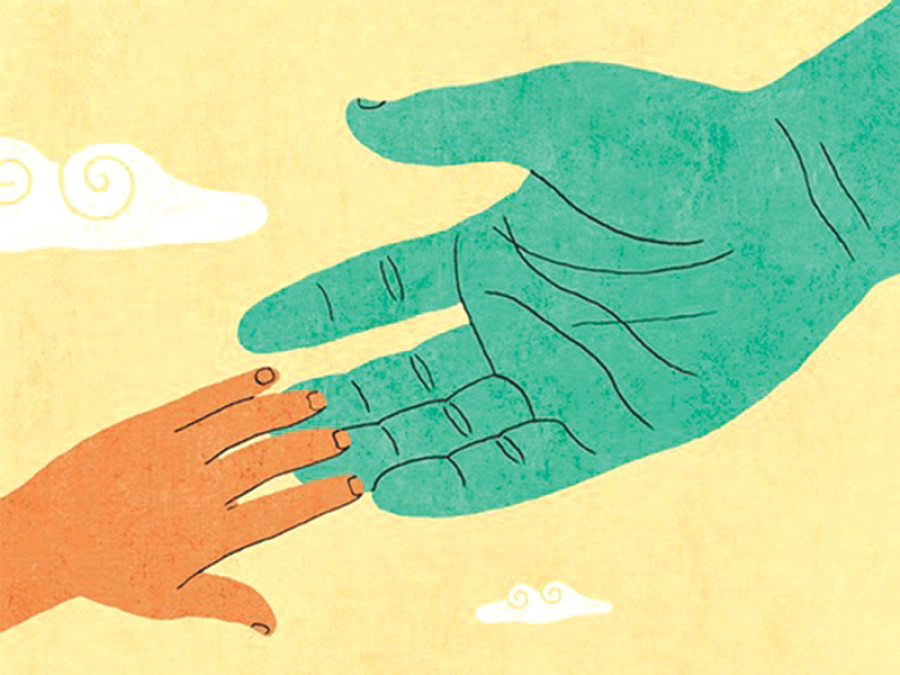Opinion
A social syndrome
I am not a mother and I do not write this article from personal experience; however, the way a woman’s lives and choices are shaped by their work-life balance after childbirth makes me uncomfortable.
Anjam Singh
I am not a mother and I do not write this article from personal experience; however, the way a woman’s lives and choices are shaped by their work-life balance after childbirth makes me uncomfortable. A majority of the women across all income strata either withdraw from the labour force after childbirth or take up flexible or part-time work. Those who continue working tend to suffer from excessive guilt. It is not my aim to downplay the scale and importance of a responsibility like childcare. My problem lies in how childcare is seen as the inherent responsibility of a mother; gendered norms on care and a woman’s own conditioning has resulted in the engineering of guilt into a woman’s psyche. In contrast, new fathers do not necessarily experience significant changes in their work-life balance.
A large section of people still cannot differentiate between the acts of giving birth and raising a child. Nature has designed a woman’s body to give birth and breastfeed, but the act of raising a child is an acquired skill that both men and women are equally capable of performing. Yet the fact that men can be equally proficient as primary care-givers is still unimaginable. Ann-Marie Slaughter, a former high-profiled staff with the US Department of State, left her government job because she found it difficult to find a balance between her parenting responsibilities and her career. In a 2012 article, Slaughter wrote “the proposition that women can have high-powered careers as long as their husbands or partners are willing to share the parenting load equally (or disproportionately) assumes that most women will feel as comfortable as men do about being away from their children, as long as their partner is home with them. In my experience, that is simply not the case.”
A woman’s choice
I have witnessed recent discussion on work-life balance post childbirth, all of which increasingly recognise and encourage a woman’s choice to continue working. However, the onus of this change is still largely put on women. These viewpoints argue that women possess an inherent internal strength and multitasking skills that equip them to achieve an optimal balance of work and childcare. There is a lurking danger to these suggestions in that they still view childcare as a woman’s primary responsibility. Such suggestions do not take into account the importance of redistributing parental responsibilities. They also do not call for systemic changes in the work place that could support childcare responsibilities, thus encouraging women to participate in paid work. Glorifying the multitasking skills of women adds to their pre-existent double burden and conveniently shifts our attention away from discussions on the redistribution of care work responsibilities.
The issue of a woman’s choice is another point that emerges in the discussions of sharing parental responsibility. On a recent Facebook thread on work-life balance post childbirth, many women shared that it was their own choice to quit their jobs and forfeit their careers in order to take care of their children. For them, being fully present in their children lives and development was more important than their careers. They also criticised the increasing trend of celebrating individual ambitions and looking down upon care responsibilities. They argued that for an individual, prioritising childcare and taking on the subsequent responsibilities is as much a valued choice as choosing a professional career. While I respect these choices, we also need to look at the bigger picture of how these choices are shaped. Doesn’t it stem from the deep-seated conditioning that women have to be primarily responsible for childcare? If this had nothing to do with gendered norms on care, why then do more women than men choose to give up their careers? This also has to do with how careers and individual aspirations of women and men are viewed differently and how they hold different meaning.
Effecting systemic changes
Men are still considered the primary breadwinners and their jobs are still considered to be important and indispensable, whereas women are often raised to believe that they are the supplementary providers and that their jobs and ambitions are only good enough as long as they do not affect the care needs of the family. Whenever there is an imbalance, women are supposed to put a hold on their individual aspirations. Specifically in the context of Nepal, there is still only a small section of women who would not be willing to give up their careers easily as it empowers them and provides meaning to their lives. Similarly, the unequal state provisions provide 90 days for maternity leave and 11 days for paternity leave, neglecting to recognise the equal responsibility of men in childcare.
Guilt in women therefore does not necessarily have to do with innate motherly instincts. It arises out of gendered norms and expectations that place disproportionate responsibility on women for childcare. Moreover, it arises because neither employers nor the state has implemented proper mechanisms and systems such as flexible working hours, childcare facilities and adequate parental leave. These systems would help women stay employed, they would also give both women and men more options to adjust and make balanced choices without necessarily burdening a single person and causing them to compromise their aspirations.
More and more women are entering the competitive work environment to work on an equal footing with men in the public sphere. It is high time we changed our domestic expectations from women and effected systemic changes in the family, community and the workplace to make childcare more equitable.
Singh is a research consultant for Institute of Social Studies Trust, a New-Delhi based non-profit organisation




 18.95°C Kathmandu
18.95°C Kathmandu










